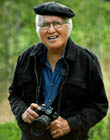|
|
This topic comprises 2 pages: 1 2
|
|
Author
|
Topic: DJANGO UNCHAINED -- Pulled From China’s Theaters
|
Manny Knowles
"What are these things and WHY are they BLUE???"

Posts: 4247
From: Bloomington, IN, USA
Registered: Feb 2002
|
 posted 04-11-2013 02:17 PM
posted 04-11-2013 02:17 PM




from THE NEW YORK TIMES
quote:
By GERRY MULLANY
Published: April 11, 2013
HONG KONG — The American film “Django Unchained” was abruptly pulled from theaters in China on Thursday, its opening day, a surprising move that came after some scenes were reported to have been edited to conform to the wishes of Chinese censors.
No reason was given for the decision to suspend the film’s opening. Workers at Beijing theaters said the film had been pulled because of unspecified technical problems with the movie.
The film was to have made its debut Thursday after weeks of heavy promotion in China. News reports have said that some of the film’s graphic violence was edited to make it acceptable to state censors, including altering the color of fake blood in violent scenes and limiting how far the blood splattered.
Such revisions are becoming increasingly common before American films are shown in China, with American filmmakers adhering to the demands of Chinese censors as they seek to tap into the country’s lucrative market of filmgoers. China is the second-largest movie market in the world, behind the United States.
“Django Unchained” won two Oscars in February, including one for best original screenplay, which went to the film’s director, Quentin Tarantino. The movie focuses on a slave named Django and a bounty hunter who pursue a particularly brutal slave owner.
Before the film’s planned opening, the Chinese media quoted a Sony Pictures official who described the changes made to appease censors and suggested that Mr. Tarantino had played a role in the changes.
"What we call bloodshed and violence is just a means of serving the purpose of the film, and these slight adjustments will not affect the basic quality of the film — such as tuning the blood to a darker color, or lowering the height of the splatter of blood,” Zhang Miao, director of Sony Pictures’ Chinese branch, told Southern Metropolis Daily. “Quentin knew how to adjust that, and it’s necessary that he is the one to do it. You can give him suggestions, but it must be him.”
Mr. Tarantino, whose films are known for their no-holds-barred depictions of gory violence, has not commented on reports that he toned the film down for Chinese censors.
Chinese media was rife with speculation by entertainment industry insiders that the movie was pulled because state censors had somehow missed a brief scene with nudity. That explanation seemed unlikely, however, given the careful vetting the film is said to have undergone before it was approved for release.
“This film, like all Chinese films, has gone through a censorship process and has been edited for a Chinese audience,” said Wei Xidi, a prominent film critic. “Because it has gone through this process, it doesn’t make sense that it would be halted all of a sudden on the night of its premiere.”
“Django Unchained” is the first of Mr. Tarantino’s famously violent movies to be cleared for distribution in Chinese theaters, though parts of his “Kill Bill” movies were filmed in Beijing. Its sudden disappearance from theaters across the country prompted consternation even among some of the Chinese government’s staunchest defenders.
Hu Xijin, editor in chief of Global Times, a state-run newspaper known for its nationalistic posture, cast the abrupt suspension of the film as a “strange decision” made by government agencies full of nervous bureaucrats. “The harm that this action itself brings to politics far exceeds the harm that would have been caused by not censoring the ‘offensive scene,'” he wrote on his microblog.
At one Beijing movie theater, an employee said “Django Unchained” was shown after midnight Thursday to about 32 people. Another worker said that the movie was ordered taken down later for technical reasons, adding, “There’s probably something in the film that’s not up to standard.”
Queried on Thursday morning, Mr. Elzer did not say why the film had been removed. A spokeswoman for the Weinstein Company — whose co-founders, the brothers Bob and Harvey Weinstein, are executive producers of “Django Unchained” — referred questions to Sony, which is distributing the movie outside the United States.
The openings of Chinese films are sometimes abruptly postponed because of last-minute wrangling between filmmakers and censors, and a film’s run in the theaters can sometimes be cut short if the authorities are worried about audience reaction. But it is extremely unusual for a high-profile foreign movie to be pulled on opening day after screenings have begun.
“This is such a big deal,” said Jiang Guangchao, an executive with Beijing’s New Film Association, one of China’s most important film distribution and theater chain firms, explaining why he could not comment or refer questions to colleagues.
But Gao Jun, the former president of the firm, which had been scheduled to show “Django Unchained” in its theaters, played down the suspension. “This is a very minor incident,” he said. “It’s just that Hollywood films aren’t that popular in China right now. People prefer to watch Chinese made films — they’re more familiar.”
As American moviemakers try to conform to the demands of Chinese censors, they have increasingly been willing to bend over backward in their efforts, even allowing government officials onto movie sets to watch the filming, as was the case with Disney and Marvel’s “Iron Man 3.”
China does not have a movie ratings system like those in the United States or Europe that would give viewers a chance to judge in advance whether a film is too violent for children or teenagers. It relies instead on the brute force of censorship: movies and television shows either have scenes excised or are banned entirely.
The absence of a ratings system “means the movies on screen need to be suitable for kids — that issue has been debated for years,” said Henry Siling Li, a media specialist at the China Executive Leadership Academy of Pudong, an elite school in the Shanghai area for training rising stars in the Chinese Communist Party.
“We have to remove nudity and violence from movies” as long as there is the possibility that children will be in a cinema when a movie is shown, he said.
Mr. Li added that he did not know what the difficulty might have been with “Django Unchained,” but expressed surprise that it had been pulled at the last moment because it had been the subject of a saturation advertising campaign that usually would not be conducted if a movie’s future were in doubt.
NY Times Original Link
| IP: Logged
|
|
|
|
|
|
|
|
|
|
|
|
|
|
Richard Hamilton
Phenomenal Film Handler

Posts: 1341
From: Evansville, Indiana
Registered: Jan 2000
|
 posted 04-12-2013 02:28 PM
posted 04-12-2013 02:28 PM




A few thoughts..
First why is Hong Kong reporting about this and was it pulled there also? Does Mainland China control censoring in Hong Kong? I thought they were basically 2 different countries. When I was living in southern China I had to go to Hong Kong every 30 days to get my passport stamped. It was only about a fifteen minute cab ride, but about 2 hours going through customs.
Second, did they pull "The Man With 2 Iron Fists"? A film Tarantino was associated with and just as gory as the "Kill Bill" films and shot in China using Chinese film crews and actors.
Third, I guarantee Django is already available there uncensored on DVD.
And lastly, I think they are afraid of black men. During an install I did there, one of the screen guys was about 20 years old, bald, diamond earings and just a muscular black guy. When we would walk down the street, cars would actually stop and stare at us.
Damn Commies, maybe this whole news story is censored? ![[Roll Eyes]](rolleyes.gif)
By the way, the girls who hung out at my apartment would watch movies and have the subtitles on and listen to Chinese and read English subtitles, then watch the movie later in English with Chinese subtitles. They said they were doing it to learn how to speak English better. (Me fuck you long time only goes so far on $100)
.02 worth, Rick
| IP: Logged
|
|
|
|
|
|
|
|
|
|
|
|
Leo Enticknap
Film God

Posts: 7474
From: Loma Linda, CA
Registered: Jul 2000
|
 posted 04-13-2013 01:27 PM
posted 04-13-2013 01:27 PM





quote: Robert E. Allen
Ah, Joe, there were no movies back in the Victorian era.
Sorry to sound pedantically geeky, but actually there were, if only for the last six years of it. And some of them were quite violent, too. For example:
The Execution of Mary, Queen of Scots (1895)
Explosion of a Motor Car (1900)
The Execution of President McKinley's Assassin (re-enactment by Edison and Porter) (1901)
quote: Robert E. Allen
In recent years the industry has developed a taste in many movie-goers for the blood and guts special effects ...
The films linked above shocked and outraged just as many people for their blood-and-guts content around the turn of the twentieth century as Tarantino's stuff does now. The 1933 King Kong had the close-ups of Kong biting and stamping on natives in the village rampage scene cut in many states and countries because the level of violence was deemed to be too shocking.
And there were lots of WWII movies (both made during the war itself and looking back on it from the '50s and '60s) that got their filmmakers into big trouble at the time, but which are now considered 'safe' black-and-white classics, shown on daytime TV and sold for $4.99 in Target. Off the top of my head, examples include Went the Day Well in Britain, a 'what to do if the Germans invade' propaganda film that included scenes of women picking up guns and shooting Nazis: councils in several cities banned it on account of this. In the United States, Crossfire dealt with some social problems that emerged in the immediate aftermath of the war, so graphically that it got its director blacklisted. Both movies are now widely regarded as classics and shown to 18 year-old students without a second thought.
What I'm trying to say is that there's not much point in comparing a Tarantino film to a Hollywood studio classic from the '30s, because both the filmmaker and the audience were doing different things in a different context.
I wonder if, as a pensioner in the 2040s, I'll be condemning the modern crap shown in theatres nowadays and wishing that the industry could still be making 'decent' films like Pulp Fiction? ![[Razz]](tongue.gif)
| IP: Logged
|
|
|
|
|
|
All times are Central (GMT -6:00)
|
This topic comprises 2 pages: 1 2
|
Powered by Infopop Corporation
UBB.classicTM
6.3.1.2
The Film-Tech Forums are designed for various members related to the cinema industry to express their opinions, viewpoints and testimonials on various products, services and events based upon speculation, personal knowledge and factual information through use, therefore all views represented here allow no liability upon the publishers of this web site and the owners of said views assume no liability for any ill will resulting from these postings. The posts made here are for educational as well as entertainment purposes and as such anyone viewing this portion of the website must accept these views as statements of the author of that opinion
and agrees to release the authors from any and all liability.
|

 Home
Home
 Products
Products
 Store
Store
 Forum
Forum
 Warehouse
Warehouse
 Contact Us
Contact Us




 Printer-friendly view of this topic
Printer-friendly view of this topic












![[thumbsup]](graemlins/thumbsup.gif)

![[Roll Eyes]](rolleyes.gif)


![[Razz]](tongue.gif)




